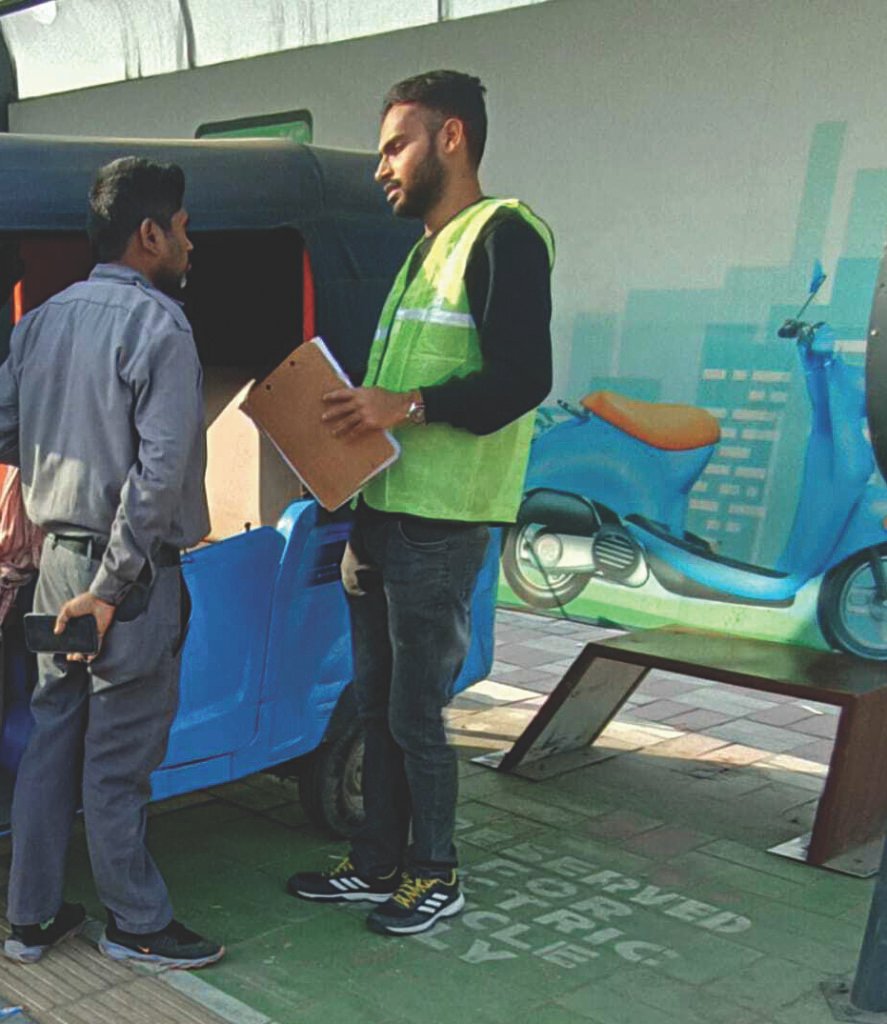
The Indian government, recognising the immense potential of Electric Vehicles, has taken bold steps to promote their adoption and has set an ambitious goal of achieving a 30% penetration rate of EVs in the overall vehicle market by the year 2030. This article by Dr. Ch. Ravi Sekhar, Chief Scientist & Head TPE and Prof. Manoranjan Parida, Director, CSIR-Central Road Research Institute, explores the key initiatives, including subsidies, charging infrastructure development, supportive policies, and research and development programmes, implemented by the Indian government to promote EV adoption. It also discusses the challenges associated with EV adoption and the far-reaching benefits of transitioning to electric mobility.

Prof. Manoranjan Parida, Director, CSIR-Central Road Research Institute
The growth of India’s electric vehicle (EV) market has been remarkable in recent years, driven by a combination of factors such as government support, increasing consumer awareness, technological advancements, and a shift towards sustainable transportation solutions. The Indian government has played a pivotal role in promoting EV adoption through various initiatives. The launch of the Faster Adoption and Manufacturing of Hybrid and Electric Vehicles (FAME) scheme in 2015 was a significant step in providing financial incentives and subsidies to both consumers and manufacturers. These incentives have helped reduce the upfront cost of EVs, making them more affordable and attractive to buyers.

Dr. Ch. Ravi Sekhar, Chief Scientist & Head TPE
In 2021 alone, approximately 0.32 million electric vehicles were sold, representing a staggering year-on-year growth rate of 168%. This surge in sales is a clear indication of the growing awareness and acceptance of EVs among Indian consumers. The growth of India’s EV market can be attributed to a combination of government initiatives, increasing consumer awareness, technological advancements, supportive policies, and industry collaboration. With the ongoing efforts and a conducive policy framework, India is poised to achieve its ambitious goals in EV adoption, contributing to a cleaner and more sustainable future.
Charging Infrastructure Development
The Indian government, recognising the importance of charging infrastructure, has implemented policies and initiatives to accelerate its development. Public-private partnerships have played a crucial role in establishing charging stations in key locations across the country. These include highways, residential areas, commercial complexes, parking facilities, and public spaces. To ensure interoperability and standardisation, the government has encouraged the installation of both slow and fast-charging stations. Slow-charging stations, commonly found at homes and workplaces, provide overnight charging convenience, while fast-charging stations offer a quicker charging option for drivers on the go.

The Charging station for EVs in New Delhi
Private companies and start-ups have also made significant investments in charging infrastructure development, contributing to the growth of EV charging networks. These companies have deployed innovative solutions such as mobile charging units, battery swapping stations, and advanced charging technologies to cater to the diverse needs of EV owners.
Supportive Policies for EV Adoption
One of the key supportive policies by the Indian government is the provision of financial incentives and subsidies. These include tax incentives, exemptions from road tolls and registration fees, and preferential treatment for EVs in terms of parking and access to restricted areas. the government has focused on creating a supportive regulatory framework for EVs. This includes setting emission and fuel efficiency standards for vehicles, promoting the use of renewable energy in charging infrastructure, and facilitating the integration of EVs into the existing energy grid. These have helped address barriers such as high upfront costs, lack of charging infrastructure, and consumer hesitation.
Addressing challenges and ensuring widespread coverage will contribute to alleviating range anxiety, enhancing convenience, and encouraging greater adoption of electric vehicles, leading to a more sustainable transportation ecosystem in India.
 Research and Development Initiatives
Research and Development Initiatives
India’s R&D initiatives in the EV sector are aimed at promoting innovation, indigenous manufacturing, and technological advancements. By fostering R&D collaborations between industry, academia, and research institutions, India is focused on developing advanced battery technologies, charging infrastructure solutions, and EV components. These efforts will not only enhance the competitiveness of Indian EV manufacturers but also position the country as a global hub for EV innovation and technology development.
Challenges
While the EV market in India has witnessed significant growth, one major challenge is the high upfront cost of EVs compared to conventional vehicles. Another challenge is the limited charging infrastructure across the country. The development of a robust and widespread charging network is crucial to alleviate range anxiety and provide convenient access to charging facilities. Additionally, improvements in battery technology, including range, charging speed, and durability, are essential to enhance the overall driving experience and address consumer concerns.

Significant trends towards EV Adoption
CSIR-CRRI conducted a comprehensive study in NCT Delhi, a city grappling with severe environmental issues, particularly air pollution. The primary contributor to this is transportation, especially vehicle emissions. By promoting the adoption of electric vehicles, Delhi can significantly reduce air pollution stemming from transportation.
The research conducted by CRRI involved collecting a total of 3,000 samples, encompassing four-wheelers, three-wheelers, and two-wheelers. The study considered both personally owned vehicles and also focused on shared mobility solutions, which have gained significant attention in Delhi. These cutting-edge and eco-friendly transportation options offer potential solutions to the pollution problem.
 TrafficInfraTech Magazine Linking People Places & Progress
TrafficInfraTech Magazine Linking People Places & Progress


